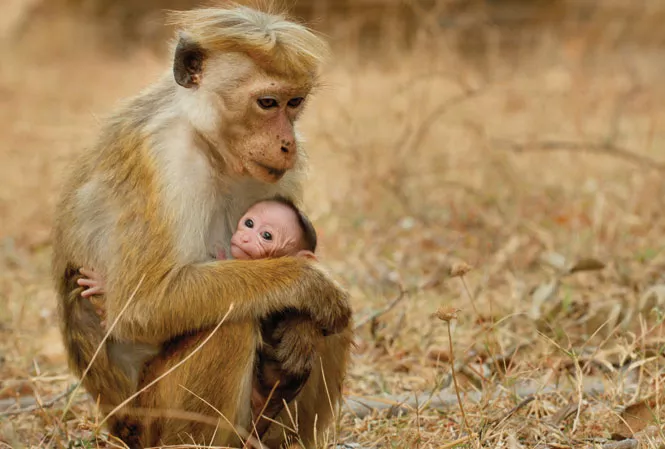
- Monkey Kingdom
If you watch enough movies for a long enough time, it's hard to imagine something about "The Disney Way" isn't bound to drive you nuts eventually. Maybe it's the sameness in the design of their big-eyed animated heroines, or the structure of the post-1989 wave of animated musicals. And lately, maybe it's the apparent desire to raid the entirety of their animated feature catalog to create live-action offshoots and remakes because it's a license to print money. When you've figured out an identity that breeds success, you're bound to develop certain formulas that perpetuate that success, and there will always be people who find those formulas as exasperating as many others find them irresistible.
Disney has been doing nature documentaries in some fashion going back more than 60 years, to the time when their True Life Adventures were winning Oscars and charming audiences with the folksy narration of Winston Hibler. These documentaries were successes in large part because Disney figured out that the same rules that applied to the animals in their animated features applied to the real-world animals they were filming: People care about characters, and the more like humans those characters seem, the better. It's not enough to give the audience information; you need to give them a story. With the Disneynature label now offering its latest annual Earth Day-scheduled release, Monkey Kingdom, you can see that notion behind everything in this story that's charming, educational and occasionally exasperating.
The focus is on a troop of toque macaque monkeys living in the forests of Sri Lanka, a landscape full of misty treetops and long-abandoned temples. Because this is a Disney story about these monkeys, we get to know them by name (narrated by Tina Fey): There's Maya, our plucky heroine who's at the bottom of the macaque social hierarchy, dominated by alpha male Raja and a trio of females known as the Three Sisters. There's a roguish young male named Kumar who wanders in one day and sweeps Maya off her little monkey feet before being chased off by Raja. And, soon thereafter, there's baby Kip, Maya's adorable little offspring who becomes the focus of her survival instincts.
The directing team of Alastair Fothergill and Mark Linfield return from their work on Earth and Chimpanzee, and they once again demonstrate a talent for getting shots that become even more impressive when you see the behind-the-scenes footage during the credits showing what they had to do to get those shots. An annual termite swarm becomes a feast for the macaques as they grab the flying insects out of mid-air; a desperate quest for food that leads to a dangerous encounter in a lily pond gives us underwater glimpses of the monkeys' swimming skills. From adorable snippets of baby monkeys playing to a sequence in which the macaques raid a human house in a nearby town, Monkey Kingdom delivers the kinds of images that can keep audiences from feeling they're being forced to endure something (horrors!) educational.
But it is educational, and that educational component works largely because the narrative, through effective storytelling, keeps reinforcing what these creatures' lives are like. Making Maya the equivalent of a plucky underdog—a single mom surviving on the scraps left by the upper class, yet determined to give her offspring a better life—allows Monkey Kingdom to focus on power dynamic, and how much this world is about preserving and demonstrating that power. It's a savvy move to place both the struggling mom and her cute baby at the center of the narrative—particularly for children viewers—because it makes the details that follow memorable on an emotional level, rather than mere bullet points from a textbook.
It is hard, though, not to feel a little bit overly manipulated by the structure of Monkey Kingdom's story. The "villains"—the red-faced Sisters, and the leader of a rival macaque troop with a battle-torn face—are almost too perfect in their Shakespearean physical ugliness, and it's hard to believe that the top-of-the-hierarchy folks are quite as helpless and in need of guidance from their plucky inferiors when they're driven from their home by that rival troop.
By the time Maya gets her almost princess-like happy ending, it might be tempting to roll your eyes at the Disney-ness of it all. Then again, maybe it's that Disney-ness that keeps you watching all the way to that happy ending in the first place.
MONKEY KINGDOM